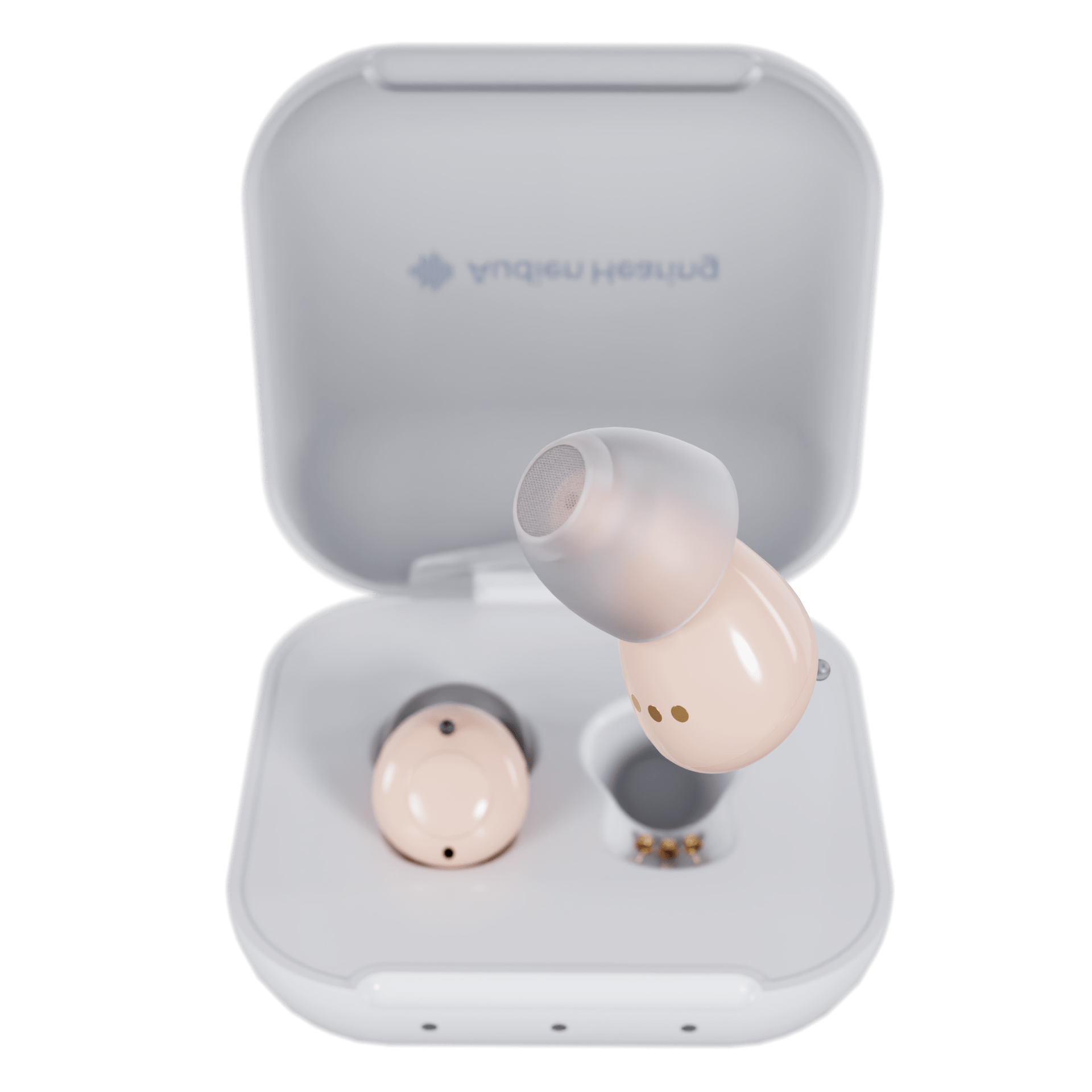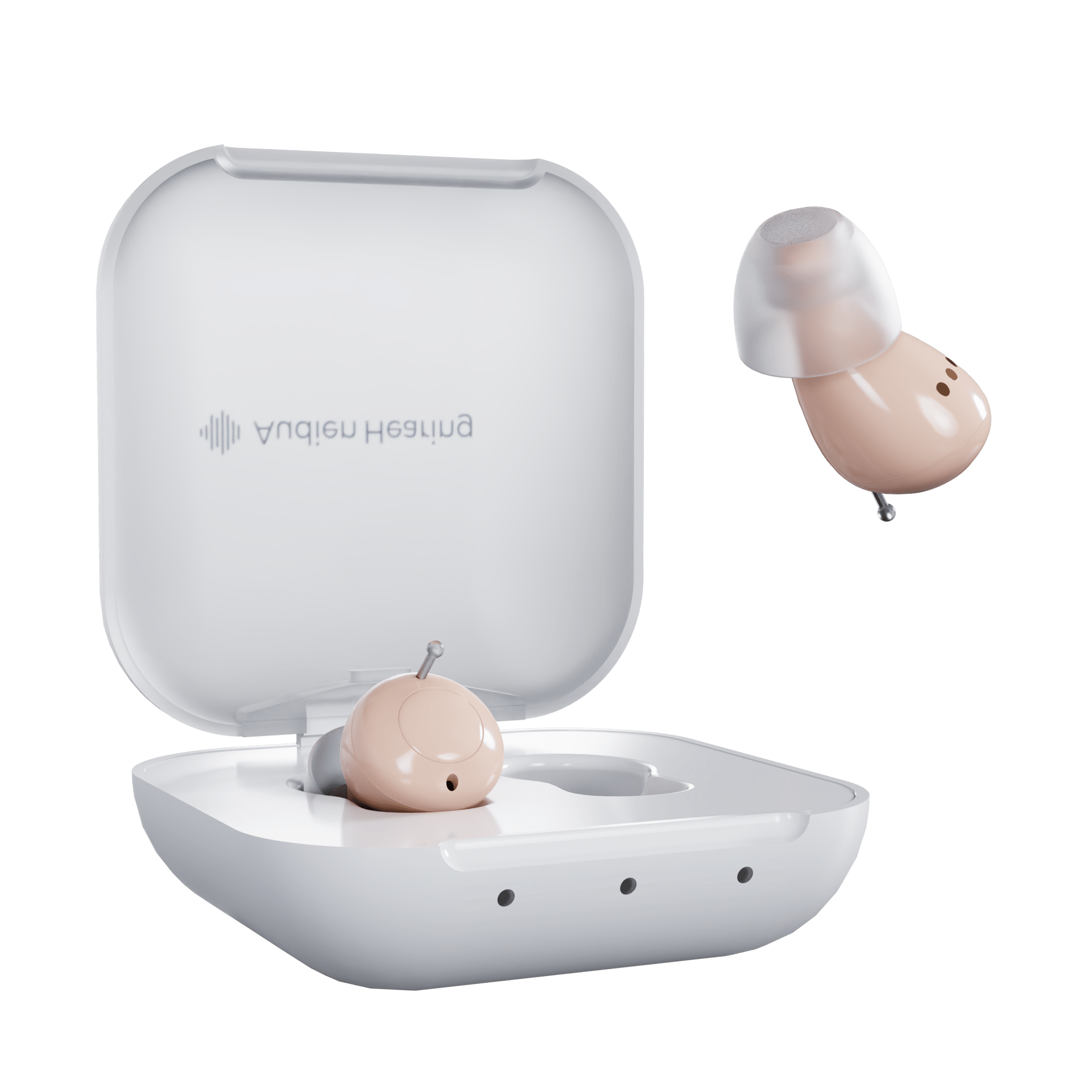
If you occasionally hear buzzing or ringing sounds without an external source, then you may be suffering from tinnitus.
Tinnitus is a common neurological condition characterized by the awareness or perception of sound, noise in the head or ear without an identifiable source. While some cases may be chronic, others may be debilitating and affect your overall quality of life.
The American Tinnitus Association reported that more than 50 million people in the US experience tinnitus. The same study reveals that about 20 million people have been diagnosed with chronic cases, while two million people have severe tinnitus.
Tinnitus isn't a disease in itself; instead, it is triggered by underlying health conditions, which may include
- Noise and age-related hearing loss
- Circulatory system disorder
- Head and neck trauma
- Ear Blockages
- Stress and emotional trauma etc.
These disturbing and phantom sounds don't exclusively take the form of buzzing noises. They may manifest as hissing, clicking, whooshing, roaring, humming, ringing, or music. In its most severe form, which varies from day to day, the noises may come as very loud train whistles or squeals.
Patients that experience Tinnitus suffer mild to severe levels of discomfort. And this condition may take a considerable toll on their emotions. It becomes traumatic when tinnitus becomes chronic and severe.
When you experience extraordinarily stressful ailments that are overwhelming, emotional trauma may set in. Severe tinnitus can leave you struggling with painful upsetting emotions, and anxiety that lingers.
What are the Common Causes of Tinnitus
Health professionals and medical experts have identified the most prevalent causes of Tinnitus.
Let's take a look at some of them.
Hearing Loss

Hearing loss or injury to the auditory system may be age-related or noise-induced.
As people get older, especially from age 60 and above, their hearing deteriorates and may cause tinnitus. Age-related hearing loss (presbycusis) is more prevalent among the elderly.
Noise-induced hearing loss may happen due to exposure to loud music from your headphones over some time. Losing your hearing is a huge price to pay for having a good time.
Tinnitus could happen due to a short-term or a single traumatic exposure like gunshots, explosions, or music from loudspeakers at a concert.
Traumatic Head or Neck Injuries
Head and neck trauma from accidents, assaults, and blunt force can cause blood flow issues and auditory nerve damage. Injuries of this kind result in higher volumes of tinnitus when compared to the other causes.
Ear Blockage
Obstructions in the ear canal by dirt or alien objects, ear wax, hair may affect the eardrum’s functioning and cause tinnitus. In this case, early detection and removal of these blockages will relieve tinnitus. Albeit, ear blockages for a long time may cause permanent damage to the ear and chronic tinnitus.
Medications

Some drug prescriptions can cause tinnitus. As a temporary side effect for most drugs, symptoms could subside if the patient discontinues the medication.
Other ototoxic medications can cause permanent tinnitus. Ototoxic drugs cause damage to the sensory cells used in hearing and balance. Some of them include antibiotics, cancer medications, Non-Steroidal Anti-Inflammatory Drugs, Quinine-based medicines, antidepressants, etc.
It is essential to consult your healthcare care provider, pharmacist, or physician before taking any medication.
Emotional and Psychological Trauma

Certain events or occurrences in our lives can cause emotional trauma. These events may be one-time events like attacks, accidents, injury, surgery, breakups, layoffs, or the death of a loved one. Ongoing events like domestic violence, abuse, chronic and life-threatening ailments like cancer, kidney, and tinnitus may also trigger emotional trauma.
The way we react and respond to trauma differs from person to person. While some display emotional and psychological symptoms, others display physical symptoms or a combination of both.
Emotional and psychological symptoms may include
- Depression, fear, and anxiety
- Moodswings, anger, and irritability
- Shock and flashbacks
- Confusion and inability to concentrate
- Sadness or hopelessness
- Withdrawal and difficulty connecting with your loved ones, friends, and co-worker
Physical symptoms of emotional trauma may include:
- Fatigue, insomnia, and nightmares
- Inability to concentrate and execute daily work tasks
- Muscle tension, aches, pains, and discomfort
- Disturbing sounds in one or both ears (Tinnitus)
Psychiatric disorders like stress, depression, anxiety, and emotional trauma can increase tinnitus, especially for patients with severe underlying health conditions.
Patients suffering from chronic tinnitus are pegged by the frequent sounds in their ear or head and cannot fully relax, rest, or enjoy sleep. Lack of adequate rest can lead to emotional trauma symptoms like fatigue, insomnia, irritability, restlessness, mental and physical exhaustion.
Other Causes of Tinnitus
Some of the other health conditions that may cause tinnitus include temporomandibular joint disorder, metabolic and autoimmune disorders, vestibular disorders, etc.
Does Emotional Trauma Cause Tinnitus?

Several studies have provided evidence that tinnitus and emotional trauma are deeply connected. For instance, when we experience overwhelming events like hearing loss or inability to process sounds correctly, it can trigger emotional trauma, stress, anxiety, depression.
Although emotional trauma cannot cause tinnitus, it can aggravate tinnitus symptoms for patients with underlying health conditions. Understanding the correlation is a critical process during the treatment and management of tinnitus.
People living with tinnitus often suffer the emotionally draining effects in their day to day lives. While sharing his story and battles with tinnitus, Canadian actor, author, and singer William Shatner said, "There were days when I didn't know whether I would survive, the screeching in my head so tormented me."
William Shatner experienced tinnitus because he was standing too close to a special effects explosion while filming on Star Trek’s set. Although Shatner suffered noise-induced tinnitus, the emotional impact was far-reaching and frustrating until he sought help.
The annoying sounds that patients experience cause major distractions that affect their emotional processing systems and overall quality of life. In extreme cases, where you cannot control your thought process and are not sure when the discomfort will end, suicidal thoughts may set in.
Studies About Tinnitus and Emotional Trauma
Several studies have established the relationship between tinnitus and emotional trauma. A study from the University of Illinois has shown that patients who experience tinnitus process emotions in the brain differently than those with normal hearing. The research team lead, Professor Fatima Husain, noted that tinnitus is associated with anxiety, increased stress, depression, and irritability.
Other studies have revealed that stress and emotional trauma can aggravate tinnitus or increase its severity. A survey carried out by Gomaa et al. at Minia University in Egypt found a direct correlation between the duration of tinnitus and stress severity. Patients living with high-stress levels had severe tinnitus or suffered from tinnitus for a long time.
A study by Herbert, Szczepek, and Mazurek documented emotional stress among people living with tinnitus. The study revealed that 52.8 percent of patients experienced increased tinnitus during periods of extreme stress. Also, 53.6 percent of people said their tinnitus had resurfaced during stressful periods in their life.
These studies’ key takeaways are that understanding the relationship between tinnitus and emotional trauma or stress-related disorders can have far-reaching implications on patients’ therapies and interventions.
Managing Emotional Trauma Caused by Tinnitus
There is no clinically proven cure for severe or chronic tinnitus. Albeit, early diagnosis, and treatment can help manage the condition and minimize its impact and burden. If you are experiencing tinnitus, there are several ways you can manage the emotional trauma.
Avoid Living in Solitude

There is a tendency for people suffering from emotional trauma to live in isolation and withdraw from friends, family, and colleagues. But living in solitude will end up aggravating tinnitus. Connecting with people can enable you to get help faster and heal quickly. Here are some of the ways you can get help.
- Talk to a counselor or a medical expert.
- Participate in social activities like cooking classes, dinner parties, movie nights, beach parties, and community service.
- Make new friends by joining a club that suits your interests, reach out to your neighbors or colleagues.
- Reconnect and maintain relationships with old friends from alumni associations.
- Join a support group for people living with tinnitus or people going through emotional traumas. Connecting with other patients will reduce your sense of isolation, and hearing stories from other people will inspire you during your recovery process.
Maintain a Healthy Lifestyle
Living a healthy lifestyle will increase your body's capacity to cope with trauma and stress due to tinnitus. Let's take a look at some health tips that may help you.
Get Lots of Sleep

The disturbing noise and intrusive sounds from tinnitus cause mental exhaustion and can distort your sleep patterns. Lack of adequate sleep can exacerbate your emotional trauma symptoms and make it difficult for you to maintain your emotional and mental balance. Try to sleep for up to seven to nine hours every night.
Avoid Alcohol and Drugs
Alcohol and hard drugs can worsen your emotional trauma symptoms. They also increase feelings of isolation, anxiety, and depression.
Eat Well
Eating well-balanced diets will help to improve your physical and mental health. Good food will ramp up your energy level, reduce mood swings, and help manage emotional trauma.
Relax and Reduce Stress
Deep meditation and relaxation can reduce emotional trauma, depression, and feelings of anxiety resulting from tinnitus. There are multiple ways you can relax.
You can go ahead and try relaxation techniques like yoga, meditation, or deep breathing exercises. Also, you can schedule a time to engage in activities and favorite hobbies that make you happy.
Treatments
The primary goal of treatment for tinnitus is to reduce the effect of tinnitus. Although the severity of tinnitus may differ from patient to patient, some of the recommended treatment options include
Use of Hearing Aids
Exposure to loud noise can damage the eardrum, cause hearing loss and tinnitus. If you are a musician and get frequent exposure to high-frequency sounds, you need to use hearing aids to protect your auditory nerves from potential damage.
Sound Therapies
Sound-based treatment involves the use of external noise to either mask the patient from the sound of tinnitus. These therapies can also divert the patient's attention from the sound or reclassify the noise as a sound that should be ignored.
Conclusion
Emotional or psychological trauma cannot cause tinnitus. However, if you are currently living with tinnitus, emotional trauma and other psychiatric disorders can worsen your condition.
But it's not all doom and gloom. Early detection, precautionary measures, and treatments can help you manage the emotional distress associated with tinnitus.
If you notice early symptoms, consult a doctor or audiologist to get help.













